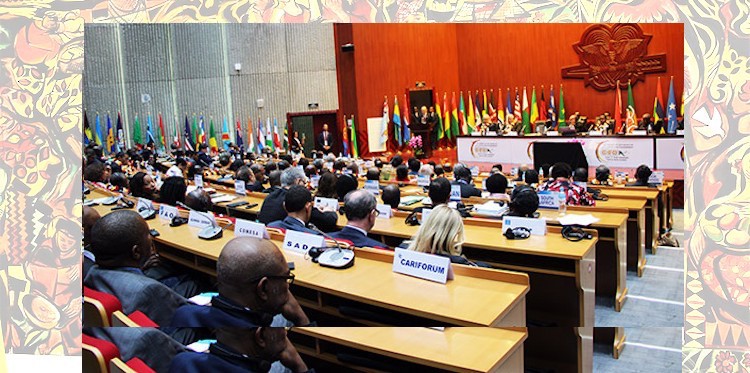By Reinhard Jacobsen
BRUSSELS (IDN) – The heads of state and government of the 79-nation African, Caribbean and Pacific (ACP) Group of States will gather at a momentous Summit themed ‘A Transformed ACP: Committed to Multilateralism’ from December 9-10 in Nairobi, Kenya. Laying the groundwork for finalizing the Post-Cotonou agreement as well as the revision to its Constitutive Act, the 1975 Georgetown Agreement will top the agenda of what is the 9th Summit.
In the process, the heads of state and government are expected to strengthen their commitment to implementing Sustainable Development Goals (SDGs) and enhance the Group’s visibility at the United Nations in tune with the fundamental principles of the Cotonou Agreement which include equality of partners, global participation (States and non-state actors), dialogue and regionalisation.
The ACP-EU Partnership Agreement, signed in Cotonou on June 23, 2000, entered into force in April 2003, was concluded for a 20-year period from 2000 to 2020 but revised in 2005 and 2010 in accordance with the revision clause to re-examine the Agreement every five years. It is the most comprehensive partnership agreement between developing countries and the European Union.
Since 2000, it has been the framework for EU’s relations with 79 countries from Africa, the Caribbean and the Pacific (ACP). In 2010, ACP-EU cooperation was adapted to new challenges such as climate change, food security, regional integration, State fragility and aid effectiveness.
Ahead of the Summit at the 110th Session of the ACP Council of Ministers which will precede the high-level gathering, Ministers will appoint the next Secretary General for the term 2020 to 2025. The tenure of the current Senior Management Team expires on February 28, 2020.
Preparations for the summit are spearheaded by a Working Group composed of Ambassadors Daniel Dede of the Central African Republic and Daniel Evina Abe’e of Cameroon (Central Africa); Grum Teshome Abay of Ethiopia and Omar Abdi Said of Djibouti (East Africa); Georges Chikoti of Angola and Kaire M. Mbuende of Namibia (Southern Africa); Teneng Mba Jaiteh of The Gambia and Abou Dosso of Côte d’Ivoire (West Africa); Maria O’Brien of The Bahamas and Sieglien Burleson of Suriname (Caribbean); Deo Saran of Fiji and Aunese Makol Simati of Tuvalu (Pacific).
Ambassador Jacob T. Kaimenyi of the Summit host, Kenya, chairs the Working Group.
ACP Secretary General, Dr. Patrick I. Gomes has underscored the crucial importance of this 9th Summit, characterizing it as “a decisive opportunity to secure the ACP leadership’s endorsement, in principle, of the Post-Cotonou Agreement, with a view to its signing in early 2020”.
Substantive issues are tabled for discussion at the Ministerial meetings, he says, and “we look forward to exploring how we can advance the commitment to multilateralism by the ACP heads of state and government to achieve the United Nations 2030 Agenda, and so meet current and future needs of citizens across Africa, the Caribbean and Pacific regions”.
ACP Summits take place on average, every three years in an ACP Member State. They give ACP leaders from the 79-member ACP Group an opportunity to review the major developments of interest and concern to its members on the international scene in general, and in ACP States in particular.
At the forthcoming Summit, ACP leaders will define the principal orientations of the Group’s general policy for the coming years and provide the Council of Ministers with appropriate directives for its implementation. In addition, the Summit will take stock of the Group’s cooperation with the European Union, its key development partner.
The first ACP Summit was held in Libreville, Gabon, on November 6-7, 1997, during which the ACP leaders undertook to meet on a regular basis. Consequently, ACP heads of state and government have met every two years on average, in Santo Domingo (Dominican Republic) on November 25-26, 1999; in Nadi (Fiji) on July 18-19, 2002; in Maputo (Mozambique) on June 23-24, 2004; in Khartoum (Sudan) on December 7- 8, 2006; and in Accra (Ghana) on October 2-3, 2008; Equatorial Guinea (Malabo) December 13-14, 2012; Papua New Guinea (Port Moresby) June 31 May to June 1, 2016.
ACP is an organization created by the Georgetown Agreement in 1975. The ACP Group’s main goals centre around the sustainable development of its member states and their gradual integration into the global economy; coordination of the activities of the ACP Group in the framework of the implementation of the ACP-EU Partnership Agreements; consolidation of unity and solidarity among ACP states and establishing and consolidating peace and stability in a free and democratic society. [IDN-InDepthNews – 11 August 2019]
Photo: Plenary session of 2016 ACP Summit Papua New Guinea’s Port Moresby. Credit: ACP Press
IDN is flagship agency of the International Press Syndicate.
facebook.com/IDN.GoingDeeper – twitter.com/InDepthNews

